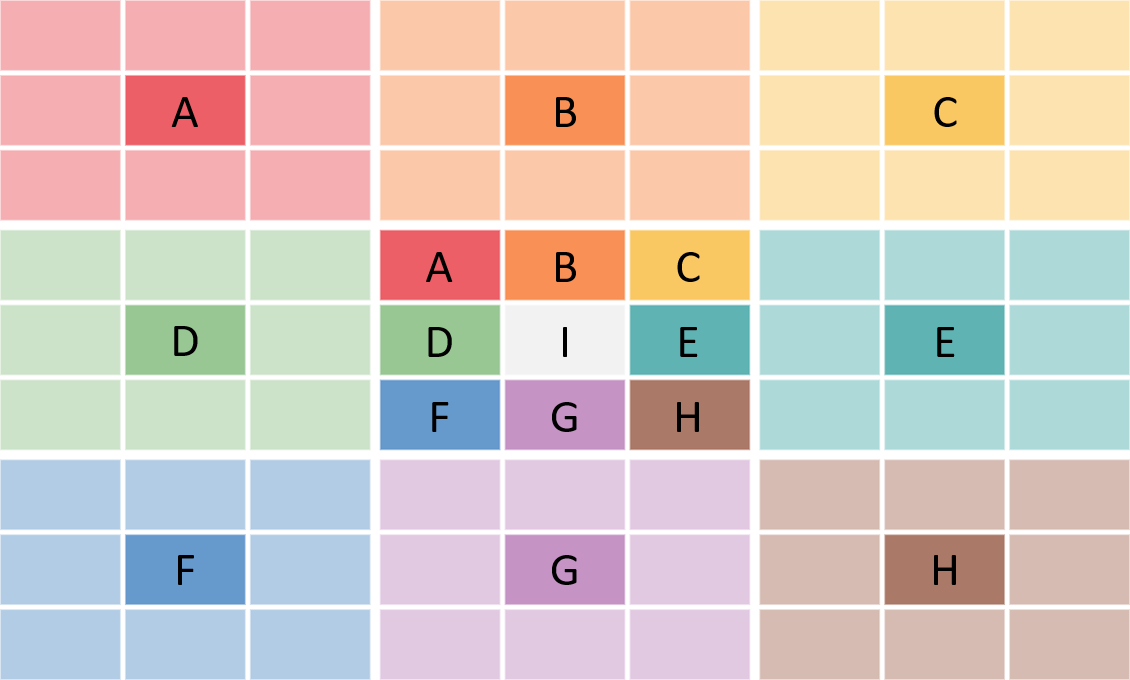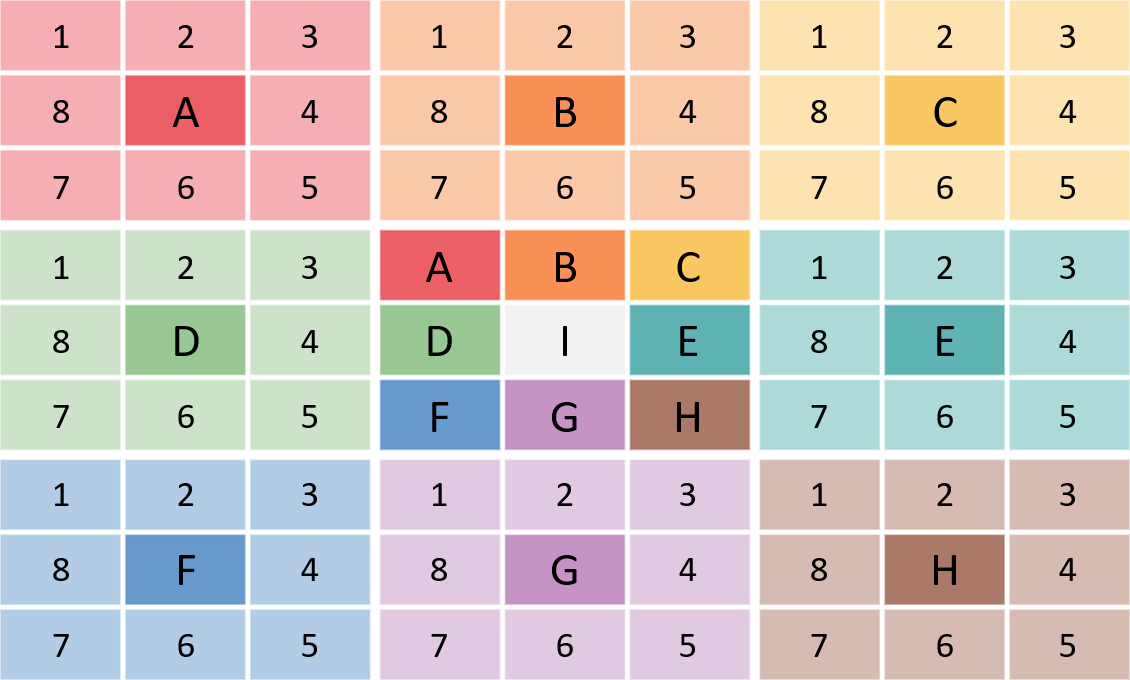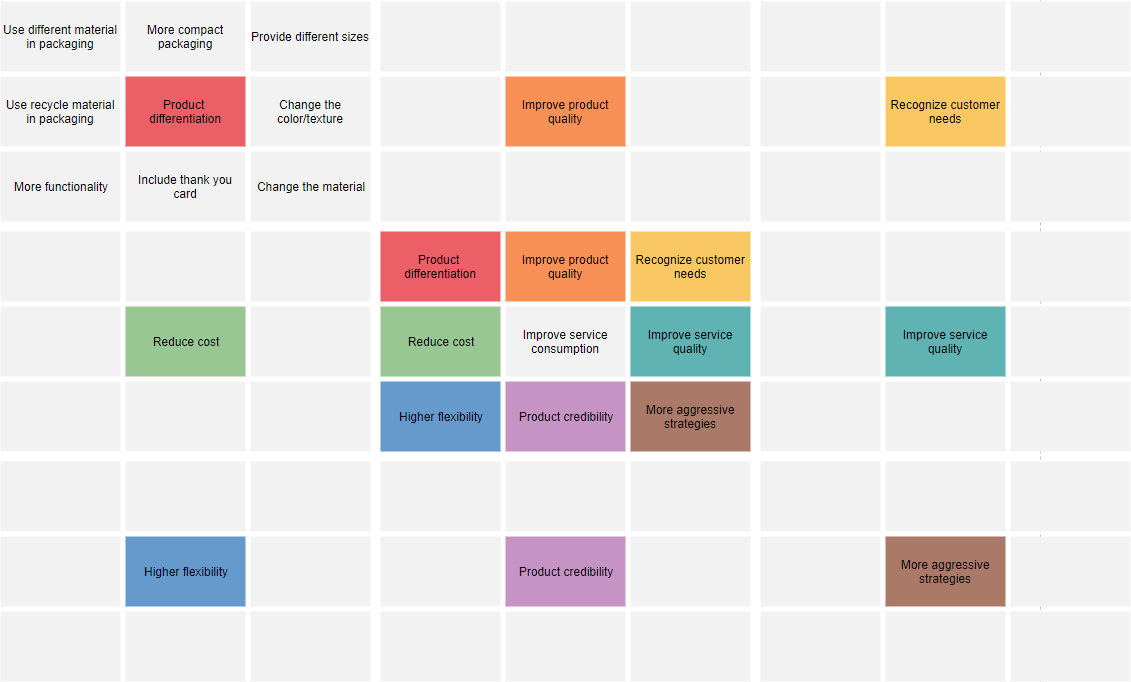The Lotus Blossom technique (also known as Lotus Diagram, or Lotus Blossom map) is designed for groups and is used to provide a more in-depth look at various solutions to problems created by Yasuo Matsumura, a management consultant working in Japan.
Lotus Blossom Tesuque begins with a central core idea surrounded by eight empty boxes or circles. Using brainstorming, eight additional ideas (solutions or issues) are written in these boxes. Central themes lead to ideas that themselves become central themes, and so forth. The unfolding themes trigger new ideas and new themes.

Edit this Lotus Diagram Template
Ideation with Lotus Blossom Diagram in 6 steps
A core concept is put in the center of the Lotus Blossom in the “I” position, with eight associated sub-concepts stemming from the core concept surrounding it (A-H in the example, above). Each of these eight words is then moved to the corresponding grid (A-H) around the core grid.
- Write down the problem.
- Pick one core concept and place it in the center of the Lotus Blossom.
- Brainstorm keywords related to the core concept. You can place the words directly on the grid surrounding the cord concept.
- Transfer the eight words from the center square as the core concept of the corresponding outer grids.
- Repeat the process as stated in step 3 for each of outer grids from A-H
- As the Lotus Blossom expands to the outer grids, new ideas or concepts will be triggered or suggested for the innovation process.

Edit this Lotus Blossom Brainstorming Template
Lotus Blossom Diagram Example – Increase product sales

Edit this Lotus Diagram template
Summary
The Lotus Blossom technique focuses on the power of brainstorming on areas of interest. It does so through the use of a visual representation of ideas and is similar to a mind-map. Starting with a central concept, and then expands outwards with solution areas or related themes in an iterative manner.
Unlike the mind mapping technique, the Lotus Blossom method fully explores one main concept before moving to its subordinates. They provide structure to the brainstorming process in the way that you don’t experience in classic mind-mapping.